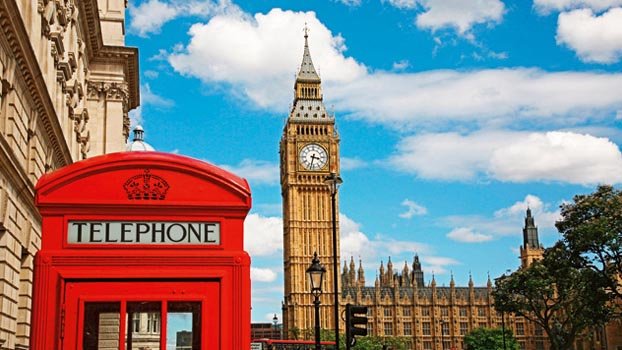Why Britain is facing the economic abyss
Time running out to reach a trade deal between the UK and EU. Failure will be calamitous

The first great work of English literature and fiction is Chaucer’s Canterbury Tales, penned as the 1300s rolled into 1400 and recounting the stories told by a group of pilgrims as they made their way from London to the Kent cathedral city and shrine to Saint Thomas Becket.
But this isn’t about Middle Age English Literature — it is about a fictional future being peddled by the Conservative government in London should it fail to reach
an agreement over the next three
or so weeks with the European Union.
By the end of October, the foundation of a deal on the future relationship between Britain and the EU needs to be in place — an all-or-nothing summit in early November might offer a last desperate roll of the dice to concoct such a deal. Fail — failure is a very distinct and real option right now — and World Trade Organisation tariffs come into effect on January 1, meaning an immediate costly punch to the solar plexus of punch-drunk British consumers weakened by coronavirus and an economy in free fall.
With coronavirus decimating the economies of all in early summer, Johnson
decided that there was no need for such an extension and declined to
activate the clause. That’s just one of many reasons — all of Britain’s doing — why we are in such a mess and why time is so pressing
UK's auto and dairy sector
About 1.7 million Brits rely on the automotive sector for a living right now. How many will there be this time next year if a 10 per cent tariff on UK auto exports is imposed as soon as the clock strikes midnight on December 31?
Right now, the UK is the 11th largest milk producer in the world. How will that industry fare once 35 per cent tariffs come into play on January 1?
In 2019, the EU as a whole accounted for 43 per cent of UK exports with goods worth £300 billion (Dh1.43 trillion) mostly going across the Channel. £38 billion went to Ireland. Trade going the other way from the EU accounted for 51 per cent of British imports, worth £372 billion.
While the figures are for 2019, the reality is that coronavirus will only have made the situation worse in 2020 — and a no-deal Brexit even worse still come 2021.
And it is all of Britons’ own doing. It is the Brexiteers in their delusions of British grandeur that has brought this economic pestilence to their shores.
A nation off limits to drivers
Chaucer’s pilgrims walking to Canterbury might have survi
ved their contemporary plagues:
Try living in Kent come New
Year’s Day.
The county will effectively become off limits to truck drivers heading to the English channel
ports of Dover, Folkestone, Ramsgate and Margate, or to the Eurotunnel road-rail transfer facility at Cheriton.
A no-deal Brexit, should the talks this month fail — only the most optimistic believe a face-saving deal can be cobbled together at this late stage — will mean that there is a customs border down the Irish Sea separating England, Scotland and Wales from Northern Ireland.
What’s more, British truck drivers will need a permit to enter Kent. The county will effectively become a no-go area for the logistics and trucking industry — a sector that represents about 11 per cent of the British economy and employed nearly 320,000 drivers in 2018.
There is a fear that a no-deal scenario will mean the roads and motorways in Kent will become clogged with trucks waiting to be processed on the other side of the Channel — conservative estimates reckon 7,000 lorries backed up at any given time.
The Conservative government has run practice exercises, and now Conservative ministers have decided that truck drivers will need a “Kent Access Permit” to cross into the county.
Arrangements are already in place for police and existing roadside number plate recognition cameras to enforce the permits.
As things stand now, the government estimates that only one-in-five businesses that export to Europe are actually ready for that no-deal scenario.
It thinks that as few as one-third of trucks heading to Europe would actually have their paperwork in order to be able to pass through ports and checks on the EU side of the Channel — hence the potential long longs of trucks blocking all progress through Kent.
Withdrawal Agreement
The real rub is that it didn’t have to be like this. There was always a provision for the current transition period between the UK and the EU to be extended to the end of 2021 under the Withdrawal Agreement that was negotiated between Brussels and Boris Johnson. With coronavirus decimating the economies of all in early summer, Johnson decided that there was no need for such an extension and declined to activate the clause. That’s just one of many reasons — all of Britain’s doing — why we are in such a mess and why time is so pressing.
Last week, after the formal period of negotiations between both sides ended and failed to reach an agreement on the future EU-UK relationship, Johnson and European Commission President Ursula von der Leyen chatted over video link and approved one more month of talks.
The differences between both sides are still very significant — the consequences of failing to do so are even more so. What tales would Chaucer tell now?
Mick O’Reilly is the Gulf News Foreign Correspondent
based in Europe



